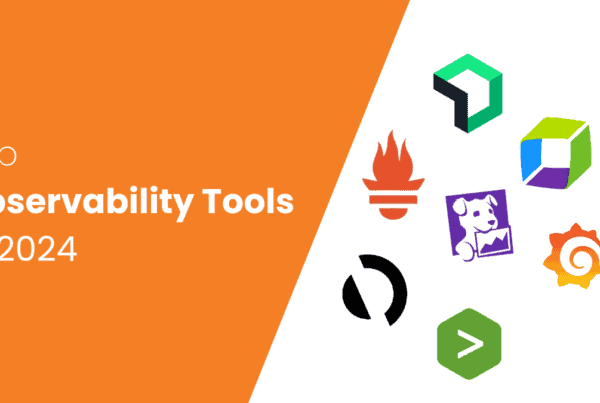
Over 900 changes in a single year, and the number continues to grow yearly. Google makes a lot of changes to their search algorithms, not every change gets exposure but some of the big impact changes are worth keeping an eye on. Knowing the major changes, content writers, publishing houses, and SEO experts need to align our websites and content accordingly.
Everyone doesn’t need to keep their content aligned (with Google’s search algorithm changes). However, if you combine your work with these changes in an authentic way, your website will benefit.
With the constant evolution of AI tools, bringing a flood of content has not been that difficult. Due to the available resources, the amount of information (new+repeated) being added to the digital sphere is also growing at a rapid pace. Thus, it’s easy to get overwhelmed.
Why Do Simple SEO Strategies Matter?
Leonardo da Vinci once said, ‘Simplicity is the ultimate sophistication.’ It’s a well-known quote emphasizing the elegance and refinement found in simplicity.
In the complex SEO world, simplicity is often the key to success. Simple strategies are easier to understand and more sustainable over time.
Google’s algorithms are becoming more competent at understanding user intent and providing relevant results. So, focusing on simple strategies aligns well with the search engines’ goals of delivering valuable content to users.
What is the Best Way to Avoid Information Overload and Focus on Simple SEO Strategies?
The strategies are the same, just the way of implementation will change. How?
Start with Solid Keyword Research
Keywords are like the building blocks of making your website easy to find on the internet. They’re the specific words or phrases that people type into search engines when they’re looking for something. To figure out which keywords to use, you can use tools like Google Keyword Planner, Ubersuggest, or AnswerThePublic. These tools help you discover the words that people commonly use to search.
According to Neil Patel, for your website to show up well in search results, you need to find the sweet spot between what people are searching for and what your website talks about.
It’s important to pick keywords that not only match what your content is about but also are popular enough so many people are searching for them. This way, your website has a better chance of getting noticed by more people.
Create High-Quality, Relevant Content
The idea that “Content is king and always will be” is really important. Once you figure out the main words people use to search for things, the next step is to create content that is truly helpful and important for the people you want to reach.
It’s really important not to use too many keywords unnaturally. Instead of doing that, focus on giving information that answers the questions your audience has and helps them with their problems.
When you do this, you not only make a strong connection with your readers, but you also become someone they trust for good information.
When you care more about providing valuable content rather than trying to trick search engines with too many keywords, your content will connect better with the people who read it and provide them with something meaningful and useful.
Optimize On-Page Elements
Think of on-page elements as the pieces that make up your web pages. They’re like the parts you use to build something. These parts include titles, headings (like H1, H2, H3), short descriptions, and permalink.
It’s a good idea to use your main keyword in the title and headings because that helps search engines understand what your page is talking about. Imagine it’s like telling them, “Hey, this is what my page is about!”
Also, make sure to write catchy short descriptions that make people want to click and see what’s on your page. It’s similar to a headline in a news article to gets attention on the article.
Mobile-Friendly is a Must
The smartest way to make your website easy to find on the internet is by making sure it works well on mobile phones.
Since a lot of people use their phones to look at websites, your website must work nicely on small screens. Google, the big man on campus for search, thinks this is so important that they even use it to decide how high your website shows up in search results.
To make sure your website works well on both big computer screens and tiny phone screens, you can use something called responsive design. This makes sure everything on your website adjusts to fit different screen sizes.
Build a Strong Internal Linking Structure
Internal linking means putting links on your website that go to other pages on the same website. This is like making paths within your website so that people and search engines can easily move around. It’s like showing how different pages are connected.
This is helpful because it helps search engines figure out how your website is set up and how different pages are related. It’s like giving them a map to understand your website better. And when you link to other pages that have similar or related information, it keeps the people who visit your site interested and reading more.
According to a blog published on Moz, these internal links aren’t just good for helping people get around. They also spread the strength of how well your pages rank and how much power they have throughout your website. It’s like sharing the goodness between all the pages on your site.
Earn High-Quality Backlinks
Rand Fishkin said that having a lot of links isn’t as important as having really good links. Backlinks are when other websites put links that go to your website. Think of them like thumbs-ups that tell search engines your stuff is helpful.
The trick is to get links from websites that are trusted and make sense of what you talk about. It’s like having well-known friends vouch for you. But be careful, don’t try to buy links or join tricky link plans, because Google doesn’t like that and might punish you for it. Just focus on getting links from good and related websites to help your website shine.
Page Speed Matters
When a website takes a long time to show up, it can make people feel annoyed, and it can also make your website not show up well in search results. But you can do some things to make it faster.
One thing is to make sure the pictures on your website are not too big.Using smaller pictures that load faster is always better. Also, you can make your website remember some stuff in people’s browsers so it loads quicker when they come back. It’s kind of like your website getting ready in advance(i.e. cache).
And there’s this thing called a content delivery network (CDN) that can help spread out your website’s stuff so it gets to people faster, no matter where they are. All these things together can help your website load up faster and keep people happy.
Keep your Content Up-to-Date
SEO is like taking care of a growing plant – you can’t just plant it and forget about it. You need to keep checking on it and giving it what it needs, in order for that plant to eventually become a tree.
It’s important to keep your website and its content up to date. Think of it like updating your wardrobe for the current fashion season. When your content is accurate and talks about what’s happening now, people like it more. If your content becomes old and not accurate, it can make your website lower rankings in search results and make people think your website isn’t reliable.
So, just like you take care of your plant by watering it and removing weeds, you need to water your website by keeping its content fresh and relevant. This way, it can grow strong and keep making a good impression on everyone who visits it.
Learn, Monitor, and Adapt
To stay up-to-date with the ever-changing SEO sphere, there are special tools, like Google Analytics and Google Search Console. They are like magic tools that let you see how well your website is doing. If you see any changes in how high your website shows up in searches or how many people visit, you can figure out the why, by using these tools.
It’s a bit like noticing when your plants are growing taller or when they are droopy due to lack of water. Once you know what’s going on, you can change your plan. It’s like adding more water to your plants if they’re not growing well. Similarly, you can change how you’re working on your website based on what the tools tell you. This way, your website can keep growing by increasing SERP and doing well in the online world.
Avoid Information Overload
There’s a lot of stuff to learn, and it can make you feel like there’s too much to handle. But don’t worry!
To make things simpler, pick a few places where you trust to get your information. These places are like your guides in this big world. Don’t keep switching from one thing to another too quickly. It’s like trying one game for a few minutes and then moving on to another one before you even understand how to play the first game..
Remember, as Brian Dean says, the trick isn’t just to find things that work. It’s about finding things that work well all the time. So, stick with good ideas and give them a chance to show results. Just like how you learn a new game and keep getting better, SEO strategies also need some time to show their magic.
Welcome to the SEO Maze
As we navigate the digital landscape of 2023, simple SEO strategies remain a solid foundation for success. By focusing on keywords, quality content, on-page optimization, mobile-friendliness, linking, and staying updated, you can build a strong online presence.
Remember, it’s about providing value to your audience and helping them find the information they need. So, embrace simplicity, stay consistent, and watch your SEO efforts yield positive results. To be successful at anything you have to grind consistently, day in day out. Then you become an overnight success, years later. It’s the same with SEO.
Reference:
- https://searchengineland.com/library/platforms/google/google-algorithm-updates
- https://neilpatel.com/blog/how-to-do-seo-for-a-tiny-website-that-doesnt-have-any-visitors/
- https://coschedule.com/blog/best-of-season-how-to-drive-10x-more-traffic-with-this-seo-technique-from-brian-dean-of-backlinko-amp-278
- https://www.searchenginewatch.com/2013/11/06/rand-fishkin-talks-new-approach-to-link-building-content-marketing-contextual-search/
- https://www.searchenginejournal.com/google-link-building-advice-stop-listening/385483/
- https://moz.com/learn/seo/internal-link



